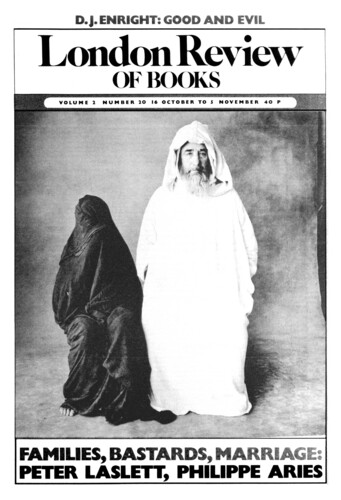Norman Bread
Christopher Holdsworth, 16 October 1980
These four books deal with periods and problems fairly widely separated in space and time, and yet they have features which make consideration of them together worthwhile. The earliest is Christopher Donaldson’s Martin of Tours, which concerns the life of a soldier who around the middle of the fourth century left his career in middle life to become a hermit and ultimately bishop of a see in north France. Consul of God by Jeffrey Richards is built around the life of another monk bishop, this time a Roman aristocrat who became pope about two hundred years after Martin’s time and is best-known to English readers as the man who sent Augustine and some monks to convert the heathen English – Gregory the Great. The third book, William Kapelle’s The Norman Conquest of the North considers a wider period than its short title indicates, for it establishes the history of what became northern England and southern Scotland in the period between 1000 and 1135. Last in time, and also the shortest, is Mistra by Sir Steven Runciman: this treats the troubled history of the most important Byzantine city in the Peloponnese, and concentrates on the period from the 13th to the 15th centuries.

